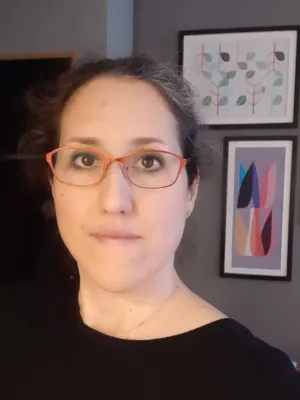
Maria Andrea Nardi
Universitetslektor

How do local peoples’ natural environments matter for peacebuilding and human rights? Nature beyond natural resources
Författare
Summary, in English
In this popular science research-based article, I explore the multi-faceted roles of nature in fostering sustainable peace and human rights in Northern Uganda. I look into other roles that ‘nature’ might play beyond its conventional association with natural resources and biodiversity. In post-armed conflict settings, where addressing gross human rights violations and reconstructing the economy and state institutions are paramount, the natural environment is often perceived either as exploitable resources or as territorial space for facilitating the recovery process. However, I argue here that nature has many other values and roles for contributing to sustainable peace and human rights. Three key issues emerge when examining conflicts during peacetime and the healing and recovery processes of local communities after two decades of violence in Northern Uganda. Firstly, nature is valued as a semiotic system, conveying meanings and symbolism deeply ingrained in the cultural fabric of the region. The natural environment serves as a powerful medium through which communities communicate, express identity, and strengthen social cohesion. Secondly, nature assumes the role of ‘medicine for the soul’, providing therapeutic benefits for individuals and communities affected by conflict. The natural environment serves as a source of healing and resilience, facilitating the recovery of individuals and communities scarred by violence. Lastly, nature is valued as public space, offering a shared arena where social interactions, dialogue, and reconciliation can take place. The natural environment transcends its utilitarian value and becomes a platform for community engagement, fostering inclusivity, participation, and the restoration of trust among diverse groups. By exploring these multifaceted roles of nature in Northern Uganda, I seek to expand the narrative on sustainable peace and human rights.
Avdelning/ar
- Raoul Wallenberg institutet för mänskliga rättigheter och humanitär rätt
- Institutionen för kulturgeografi och ekonomisk geografi
- MECW: The Middle East in the Contemporary World
Publiceringsår
2023-02-22
Språk
Engelska
Länkar
Dokumenttyp
Webbpublikation
Ämne
- Social Sciences Interdisciplinary
- Cultural Studies
Nyckelord
- Northern Uganda
- Environmental peacebuilding
- Environmental human rights
- Valuation of nature
- Nature as public space
- Nature as semiotics
Status
Published
Projekt
- The Nature of Peace – The dynamics between post-conflict peacebuilding and environmental protection

